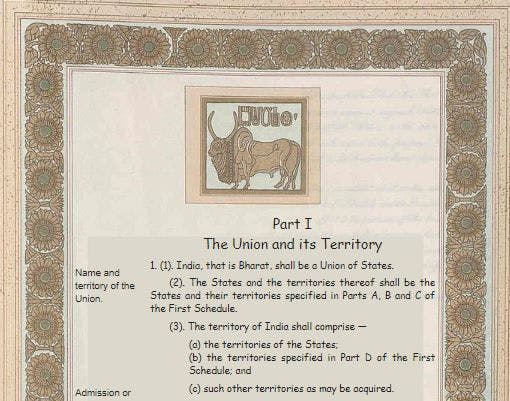Why India should be renamed "Bharat"!
The name "India" has echoed through history, across continents, and through the annals of time, signifying a diverse and culturally rich subcontinent. However, there is a compelling argument to consider renaming India as "Bharat," a name deeply rooted in ancient scriptures, history, and the country's cultural fabric.
The Case for Renaming India as Bharat: Embracing Historical and Cultural Roots

This proposal is not merely a semantic change but a reflection of India's profound historical and cultural heritage. Here, we delve into the reasons why India should be renamed Bharat.
Reconnecting with Historical Roots
The name "Bharat" has deep historical roots, tracing its origins to ancient scriptures and texts. It is a name that connects India to its mythical past, where King Bharat ruled a legendary kingdom. By adopting the name "Bharat," the nation can rekindle its historical consciousness and strengthen its connection to a rich and profound heritage.
Constitutional Recognition
The term "Bharat" is already officially recognized in the Indian Constitution, with Article 1 explicitly stating, "India, that is Bharat shall be a Union of States." Recognizing this constitutional mention, aligning the nation's official name with this historical and legal foundation is imperative.
Strengthening Cultural Identity
Renaming India as "Bharat" is a declaration of the nation's unwavering commitment to its cultural identity. India's diverse culture, languages, traditions, and art forms have flourished for thousands of years. Embracing "Bharat" as the official name highlights the importance of preserving and celebrating this cultural mosaic.
Linguistic Connections
The name "Bharat" is used across various Indian languages, including Hindi and Sanskrit. This linguistic connection makes it accessible and relatable to most of the population. A name that resonates with people in their native tongues fosters a stronger sense of belonging.
Symbolizing National Pride
Changing India to Bharat is a symbolic gesture of national pride. It signifies that the nation is not only aware of its illustrious past but is also willing to embrace it wholeheartedly. This pride can serve as a unifying force, instilling a sense of patriotism and belonging among citizens.
Independence Movement
During the Indian independence movement, the term "Bharat" was widely used to emphasize the cultural and historical identity of India as it sought independence from British rule. Leaders and freedom fighters often invoked the name "Bharat" to unite the nation and rally against colonialism, highlighting its power as a unifying symbol.
Reflecting Modern Usage
In contemporary times, "Bharat" is often used alongside "India" as the official name of the country, especially in governmental and formal contexts. Aligning the official name with modern usage ensures consistency and reinforces the nation's commitment to its historical and cultural identity.
The urgent need to change India to Bharat is not a whimsical idea but a significant step towards preserving the nation's history, culture, and unity. It is an acknowledgment of India's profound roots and a symbol of its enduring identity in an ever-changing world. By making this change, India can proudly embrace its heritage, celebrate its diversity, and move forward with a stronger sense of purpose and unity. The time to make this transformation is now, for the benefit of present and future generations.
...




